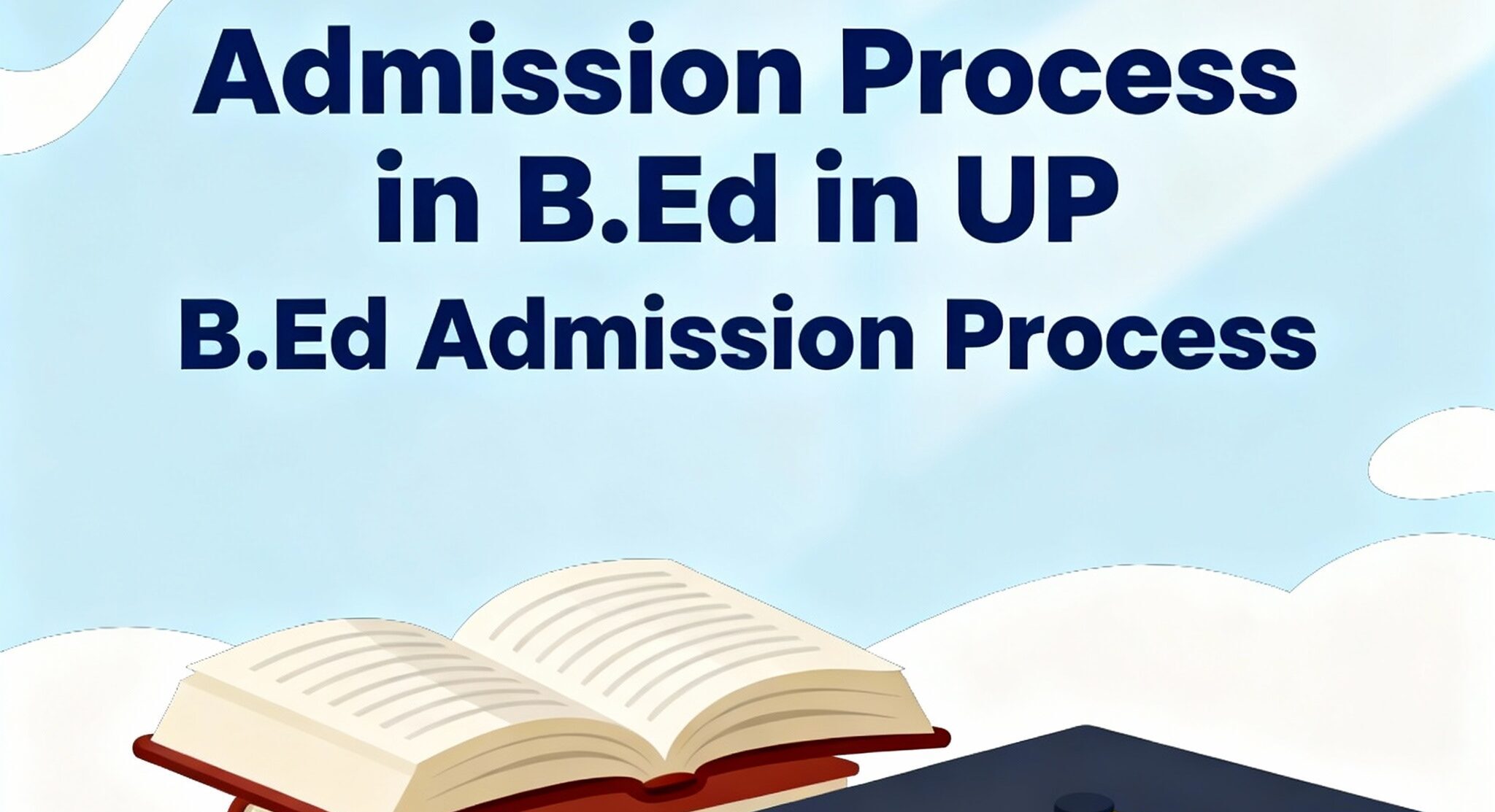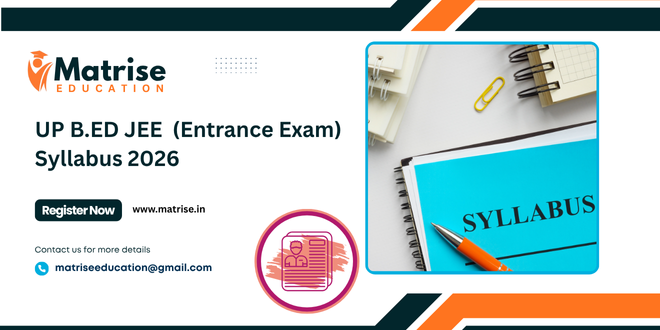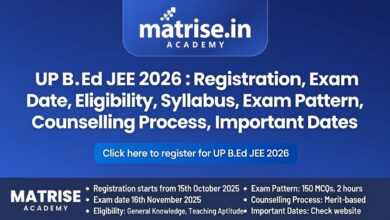
B.Ed Admission Process in UP can seem overwhelming, but with the right guidance, it’s more like following a well-marked path than wandering in a forest. In this article, we’ll walk you through every step, using simple language and relatable examples, so you can confidently start your journey toward a rewarding teaching career
What is B.Ed?
B.Ed stands for Bachelor of Education, a two-year professional course designed for those who aspire to become teachers in schools. Think of it as the foundation for your teaching career, much like the roots that support a strong tree. The course is regulated by the National Council for Teacher Education (NCTE) and is mandatory for most teaching positions in India.
Why Choose B.Ed in UP?
Uttar Pradesh is home to some of the largest and most reputed teacher training institutions in India. With a B.Ed degree from UP, you open doors to teaching jobs in both government and private schools. The state’s structured admission process ensures transparency and equal opportunity for all candidates.
Eligibility Criteria for B.Ed Admission
Before you start your application, it’s important to check if you meet the eligibility requirements. Here’s a simple breakdown:
- General / OBC / EWS: Bachelor’s or Master’s degree in any discipline with at least 50% marks.
- SC / ST / Reserved Categories: Same degree, but usually with a relaxation (often 45%).
- Engineering / B.Tech / B.E (Science & Math): Minimum 55% marks in relevant subjects.
Meeting these criteria is like having the right ticket to board the train—without it, you can’t start your journey.
Age, Nationality, and Domicile Requirements
- Minimum Age: Usually 21 years; no strict upper age limit in most colleges.
- Nationality: Must be an Indian citizen.
- Domicile: Being a resident of UP can offer certain advantages, such as relaxed criteria or reservation benefits, but non-UP candidates can also apply under the general category.
Overview of UP B.Ed JEE Entrance Exam
The main gateway to B.Ed colleges in UP is the UP B.Ed Joint Entrance Examination (JEE), also known as UPBED. Here’s what you need to know:
- Conducted by: Bundelkhand University, Jhansi (as of recent years)
- Mode: Offline (pen and paper)
- Frequency: Once a year
- Duration: Usually 3 hours
- Sections: General Awareness, Teaching Aptitude, Mental Ability, Language Proficiency
Preparing for this exam is like training for a marathon—you need focus, practice, and a clear strategy.
Step-by-Step Application Process
Let’s break down the application process into easy steps:
1. Watch for the Notification
The state releases an official notification online, usually between February and March. This includes all important dates and instructions.
2. Fill the Application Form Online
- Register on the official UP B.Ed JEE portal.
- Enter your personal, educational, and category details.
- Upload scanned copies of required documents (marksheets, certificates, photo, signature).
- Pay the application fee (varies by category).
3. Download Admit Card
Once your application is accepted, download and print your admit card before the exam date.
4. Appear for the Entrance Exam
Arrive at your exam center with your admit card and ID proof.
5. Check Results
Results are published on the official website a few weeks after the exam.
Documents Required for B.Ed Admission
Keep these documents ready to avoid last-minute stress:
- 10th and 12th marksheets and certificates
- Bachelor’s degree marksheet and certificate (or provisional)
- Caste certificate (if applicable)
- Domicile certificate (if required)
- Valid ID proof (Aadhaar, Voter ID, Passport)
- Passport-size photographs
- UP B.Ed JEE admit card and scorecard
Having these documents is like packing your bags before a big trip—better to be prepared than to scramble at the last minute.
Understanding the Fee Structure
Application/Exam Fee
- General/OBC: Around ₹1,400
- SC/ST: Around ₹700
College Tuition and Other Fees
- Government Colleges: ₹40,000 – ₹60,000 (total for two years)
- Private Colleges: ₹60,000 – ₹1,00,000 (total for two years)
- Additional costs may include hostel fees, exam fees, and study materials.
Reservation and Relaxation Policies
UP follows reservation policies to ensure fair opportunities:
- SC/ST/OBC/EWS: Reserved seats and relaxed marks criteria
- Domicile of UP: May get preference in seat allocation or relaxations
- Women, differently-abled, and other categories: Additional reservations as per government rules
Timeline for B.Ed Admission Process
Here’s a typical timeline for the B.Ed Admission Process in UP:
| Stage | Approximate Time |
|---|---|
| Notification & Application Open | February – March |
| Last Date for Application | Late March / April |
| Exam Date | May / June |
| Result Declaration | June |
| Counseling & Seat Allotment | July – September |
Staying aware of these dates is like setting reminders for important events—you don’t want to miss out!
Counseling and Seat Allotment
After the results, the next big step is counseling:
1. Registration for Counseling
Register online for the counseling process.
2. Choice Filling
Select your preferred colleges and subjects. The higher your exam rank, the more choices you’ll have.
3. Seat Allotment
Seats are allotted based on your rank, category, and preferences. Multiple rounds are conducted to fill all seats.
Reporting and Document Verification
If you’re allotted a seat:
- Report to the assigned college or verification center with original documents.
- Pay the admission or seat confirmation fee.
- Complete all formalities to secure your seat.
This step is like crossing the finish line in a race—your hard work pays off, and you’re officially on your way to becoming a teacher.
Tips for a Smooth B.Ed Admission Process
- Start Early: Don’t wait until the last minute to gather documents or fill out forms.
- Stay Updated: Regularly check the official website for notifications and updates.
- Prepare Well: Give yourself enough time to study for the entrance exam.
- Double-Check Details: Ensure all information in your application is accurate.
- Keep Copies: Always keep photocopies and digital backups of your documents.
Common Mistakes to Avoid
- Missing application deadlines
- Uploading incorrect or unclear documents
- Not preparing adequately for the entrance exam
- Ignoring counseling notifications
- Forgetting to bring original documents for verification
Avoiding these mistakes is like steering clear of potholes on a road trip—it makes your journey much smoother.
What Happens After Admission?
Once you’ve secured your seat:
- Attend orientation sessions
- Meet your faculty and classmates
- Begin your coursework, which includes theory, practicals, and teaching practice
- Participate in workshops and seminars to enhance your skills
Career Opportunities After B.Ed
A B.Ed degree opens up a world of possibilities:
- School Teacher: In government or private schools
- Educational Administrator: In schools or educational organizations
- Curriculum Designer: For educational publishers or ed-tech companies
- Further Studies: Pursue M.Ed or other advanced degrees
Think of your B.Ed as a key that unlocks many doors in the field of education.
Conclusion
The B.Ed Admission Process in UP may seem complex at first glance, but with the right information and a step-by-step approach, it becomes manageable and even exciting. Remember, every great teacher started with a single step—filling out that first application form. So, gather your documents, mark your calendar, and take the leap toward a fulfilling teaching career. The future classroom is waiting for you!
FAQs
1. What is the minimum qualification required for B.Ed admission in UP?
You need a bachelor’s or master’s degree with at least 50% marks (45% for reserved categories).
2. Is there an age limit for B.Ed admission in UP?
Most colleges require you to be at least 21 years old, but there is usually no upper age limit.
3. Can candidates from outside UP apply for B.Ed in UP?
Yes, non-UP candidates can apply under the general category, but UP domicile candidates may get certain advantages.
4. How many times is the UP B.Ed JEE conducted in a year?
The entrance exam is conducted once a year.
5. What happens if I miss the counseling round?
If you miss your counseling round, you may lose your chance for seat allotment, so always stay updated with the schedule.






2 Comments